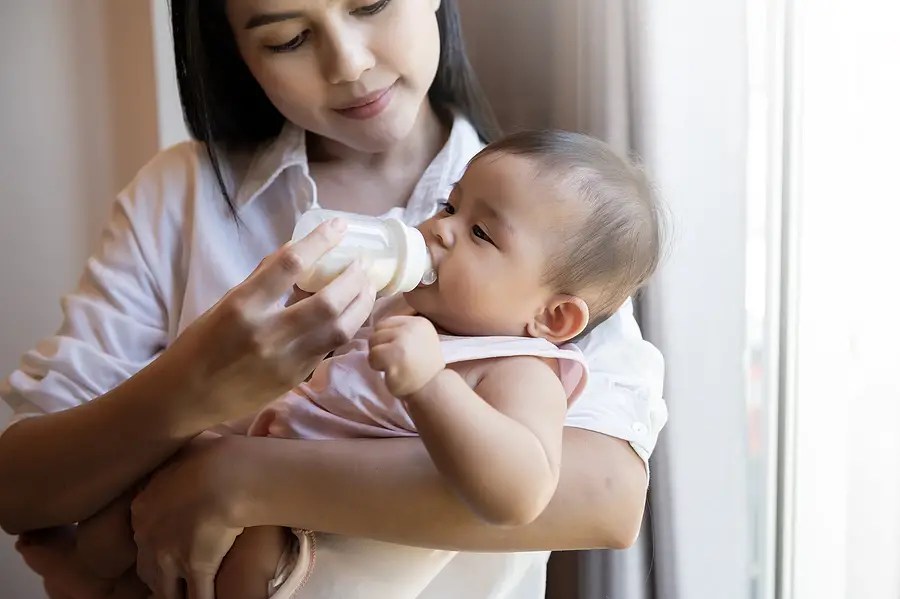As parents, we always want the best for our little ones. From making sure they are fed and happy to keep them healthy and safe, it’s a full-time job! One aspect of their health that may not immediately come to mind is their oral hygiene. Baby bottle tooth decay is a common issue among young children caused by prolonged exposure to sugary liquids in bottles or sippy cups. But don’t worry – with some simple steps; you can prevent baby bottle tooth decay and keep your child’s smile bright and healthy!
What is Baby Bottle Tooth Decay?
Baby bottle tooth decay (also known as early childhood caries) is a condition that affects young children’s teeth. It occurs when bacteria in the mouth feed on sugary substances, producing acid that eats away at the enamel of their teeth. Baby bottle tooth decay can be caused by prolonged exposure to sugary drinks like formula, milk, juice, or other sweetened liquids in bottles or sippy cups.
The most common areas affected are the upper front teeth, but it can occur anywhere else in the mouth too. If left untreated, baby bottle tooth decay can lead to cavities and even infection, which may require dental procedures under general anesthesia.
While it’s important for parents to know about this condition, there’s no need to panic! With some simple preventative measures and good oral hygiene practices from an early age, you can help protect your child’s precious smile and avoid any unnecessary dental treatment down the line.
Signs and Symptoms of Baby Bottle Tooth Decay
Baby bottle tooth decay is a serious issue that affects many infants and young children. It can cause pain, discomfort and even lead to tooth loss if left untreated. As a parent or caregiver, it’s important to know the signs and symptoms of baby bottle tooth decay so you can take action early on.
One of the most common signs of baby bottle tooth decay is discoloration or staining of the teeth. This may appear as white spots on the front teeth or brown spots on the back molars.
Another symptom to look out for is sensitivity to hot or cold foods and drinks. If your child complains about pain when eating certain foods or drinking liquids at extreme temperatures, this could be an indication of tooth decay.
If you notice your child has bad breath that persists even after brushing their teeth, this could also be a sign of baby bottle tooth decay. Additionally, if they experience pain while chewing food, this may indicate a cavity has formed in one or more teeth.
It’s essential for parents and caregivers to regularly check their child’s mouth for any signs of dental problems such as baby bottle tooth decay. By catching these issues early on, it will help prevent further damage from occurring down the line.
How to Prevent Baby Bottle Tooth Decay
One of the best ways to prevent baby bottle tooth decay is by practicing good oral hygiene. This means that you should clean your baby’s teeth and gums regularly, even before their first tooth erupts. You can use a soft cloth or gauze to wipe their gums gently after feeding.
As soon as your child’s first tooth appears, you can start brushing it with a small amount of fluoride toothpaste. Use a soft-bristled brush and make sure to brush all surfaces of their teeth and gums for at least two minutes twice daily.
It’s also important to avoid giving your child sugary drinks or foods before bed or naptime. Instead, offer them water if they need something to drink during these times.
Another way to prevent baby bottle tooth decay is by limiting the amount of time your child spends with a bottle in their mouth. Try not to let them fall asleep with a bottle in their mouth, as this can cause milk or juice residue to sit on their teeth for longer periods of time.
Regular dental check-ups are essential for preventing baby bottle tooth decay. Your dentist can detect any early signs of decay and provide advice on how best to care for your child’s teeth and gums at home.
Conclusion
Baby bottle tooth decay is a preventable condition that parents can take steps to avoid. It starts with understanding the causes and symptoms of this condition, which include prolonged exposure to sugary liquids and visible signs of discoloration or holes in the teeth.
To prevent baby bottle tooth decay from occurring, it’s important to establish good oral hygiene habits early on. This includes cleaning your baby’s gums after feedings, brushing their teeth twice daily with fluoride toothpaste when they start teething, avoiding sugary drinks altogether if possible, and scheduling regular dental check-ups.
By following these simple guidelines and consulting with your dentist regularly; you can help ensure that your child has healthy teeth for life. Remember: preventing baby bottle tooth decay is key to maintaining good oral health for both you and your little one!
To learn more about maintaining your oral health, call us at (718) 459-4700 or visit Creative Dental of Queens at 63-58 Wetherole St, Rego Park, NY 11374.




